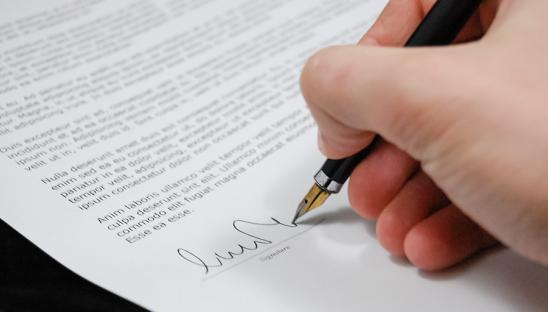
Writing a will

Writing a will is one of the most important parts of planning for the end of life. By making a will you can express your final wishes and decide what you would like to leave your family and friends.
This guide tells you what you need to know about creating a will.
Title
What's on this page
Why you need a will
Although you are not required by law to make a will, if you die without one your possessions and property will be distributed according to the law, which may not be according to your wishes.
The practical aspects of making a will can also help you to start thinking about what is important to you at the end of your life, and how you’d like to be remembered.
Who can write a will
A number of different people can help you write a will:
Solicitors
If you want help with writing a will, it’s important to use a reputable solicitor to make sure your will is valid and legally binding. A solicitor can also advise you on how inheritance tax affects you. To find a solicitor in your area visit the relevant law society:
- in England and Wales: The Law Society
- in Scotland: The Law Society of Scotland
- in Northern Ireland: The Law Society of Northern Ireland
Professional will writers
You can also choose a professional will writer, however they may not be regulated. Visit the Institute of Professional Willwriters to find a qualified will writer in England, Wales and Northern Ireland, and the Institute of Scottish Professional Willwriters if you’re in Scotland.
Charities
Many charities offer free will-writing done by solicitors. In return, they hope you’ll make a donation or leave a gift for them in your will, although you’re not obliged to. Remember a Charity is a consortium of more than 200 charities who work together to encourage more people to consider leaving a gift in their will. Their website also has information on how to write a will.
Banks
Certain banks also have will writing services. Contact your local branch to find out if they can do this.
Write your own will
You can write your own will yourself, but it’s worth seeking advice to make sure it’s done correctly and abides by legal requirements. Age UK has a useful step-by-step guide on how to write a will.
How to make sure your will is legal
For your will to be legally valid, you must be of sound mind at the time of writing it, and it must be done voluntarily.
Additionally it needs to be signed in front of two independent witnesses. These could be neighbours or friends, but not family members or anyone with a personal interest in the will. The two witnesses also need to sign the will themselves.
Once a will has been made it should be kept somewhere safe. You can keep it in a number of places:
- at home
- with a solicitor or accountant
- at a bank
- with the HM Courts and Tribunals Service
You can also register on Certainty’s National Will Register (note that there is a charge for this). Registering your will ensures that if it is lost, misplaced or forgotten over time, its location can be identified.

Free Will writing services
We offer a free Will writing service to our valued supporters.
With Kwil’s online service, you can write a free, legally-binding Will in as little as 30 minutes.
If you'd prefer to speak to someone to complete your Will, then you can also call one of Kwil's Will writing experts. They will be able to take you through the process and answer your questions.



